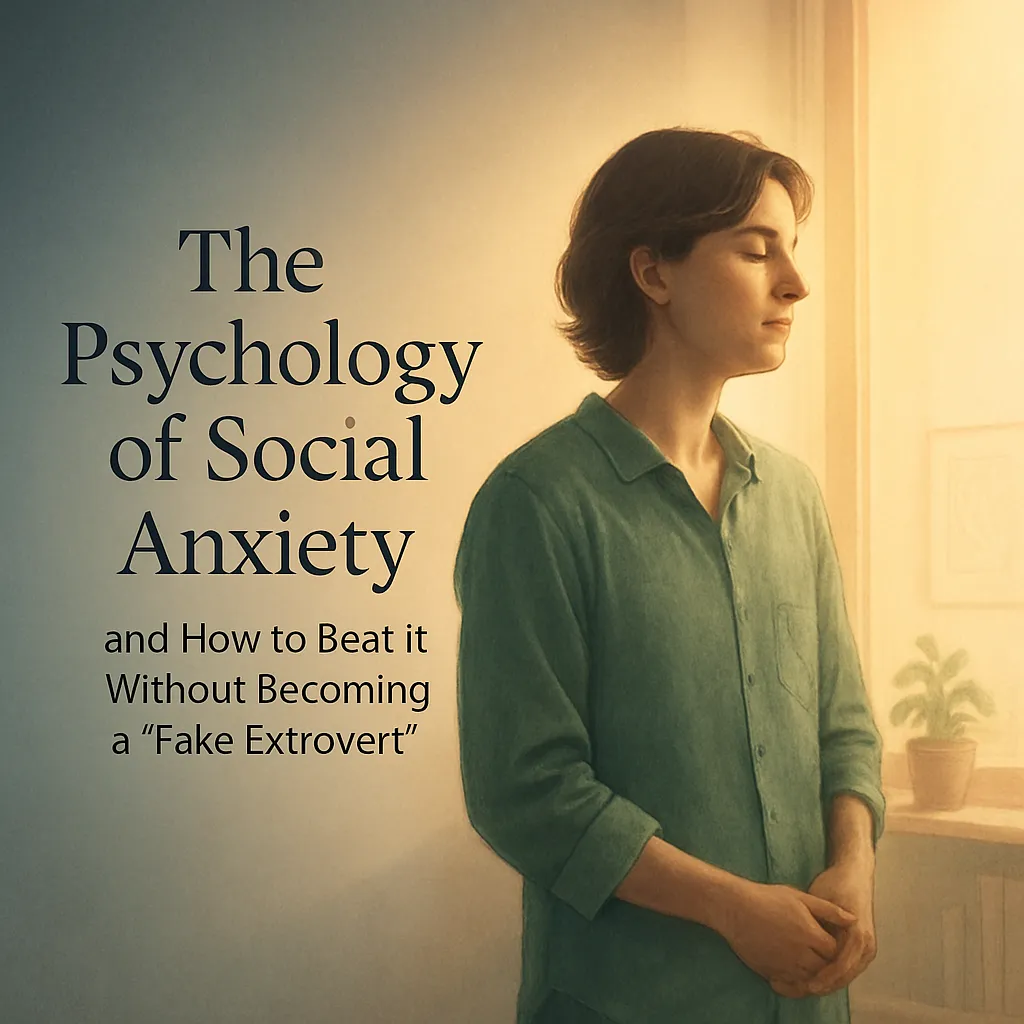
The Psychology of Social Anxiety (and How to Beat It Without Becoming a “Fake Extrovert”)
You walk into a room. Your palms sweat. Your brain whispers, Everyone’s judging you. But here’s the kicker, research says the opposite. People are wired to want to connect, and they’re thinking about themselves way more than they’re thinking about you. Nicholas Epley’s studies show that the biggest barrier to human connection isn’t your awkwardness; it’s your assumption that no one wants to engage. Spoiler: They do.
Why Social Anxiety is Rising
Social anxiety is nothing new, but the cultural fuel feeding it has shifted.
Digital dependence: We “talk” online more than we practice face-to-face connection.
Comparison culture: Scrolling curated lives creates a sense that everyone else has it together.
Overthinking epidemic: We analyze every interaction like a crime scene, rehearsing and replaying until connection feels exhausting.
Combine those with a natural fear of rejection, and you’ve got the perfect storm for social anxiety to thrive.
Nicolas Epley’s Research: The “Stranger Danger” Myth
Epley’s team conducted experiments where they instructed people to start conversations with strangers on trains, buses, and in waiting rooms. Almost everyone assumed it would be awkward or unwelcome. The reality? People were surprisingly warm, open, and, even more shocking, enjoyed the interaction.
What does that tell us? The biggest barrier to connection isn’t your awkwardness. It’s your assumption that no one wants to connect. Social anxiety lives in that gap between what’s real and what you fear.
The Evidence: Why Connection Matters
Study after study backs this up:
People who engage in more daily social interactions report higher happiness levels.
Meaningful connection boosts your immune system, reduces stress hormones, and lengthens life expectancy.
Loneliness is now considered more dangerous to health than obesity or smoking 15 cigarettes a day.
Connection isn’t just a “nice to have.” It’s survival. When you avoid peopling out of fear, you’re not just missing out on friendships—you’re starving a core human need.
